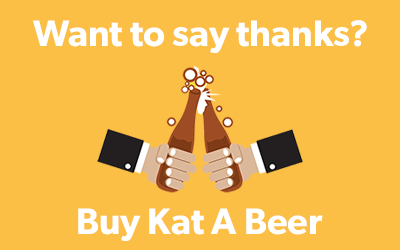If you’re here, you probably know what crowdfunding is
In fact, you’ve probably done quite a lot of crowdfunding research over a long period of time.
You may have lurked around Kickstarter for a bit. And you might know about other crowdfunding sites.
One of the first things I do with my clients is Research
Every Multitude project is crafted with the project first and foremost in mind.
The platform is chosen based on your requirements. The rewards are devised based on what you have to offer, and how much they’re going to cost you.
We throw out great reward ideas all the time because they’re going too cost so much to implement.
We look at other similar projects. If necessary, I’ll talk to the platform about the intricacies of how we can make your rewards work. It’s my job to do the groundwork so your project runs as smoothly as possible.
But not every creator can hire me
So here are four things to consider while researching your crowdfunding project to increase your chances of being funded.
1. Choose the right platform
Most people considering crowdfunding know about Kickstarter, but there are dozens of platforms out there for you to discover.
It’s the first thing you need to decide when running a project, so it should also be the first step in your crowdfunding research.
Kickstarter is great for products, but other projects can struggle. Similarly, PledgeMe is great for community and personal projects, but a product has a high chance of failure.
This is why I love CrowdsUnite. It’s a library of all the crowdfunding platforms out there, and includes ratings from people who have used them.
A few questions about your project and you’ll be presented with a range of options for you to check out. Easy!
Make sure your platform is trustworthy and useable for your backers, and choose based on your individual circumstances.
2. Become a backer
Put your money where your mouth is and back someone else.
In fact, back more than 5 someone elses.
It doesn’t have to be for a large amount, but having experience as a backer will put you in a better position when it comes to running your own campaign.
You’ll know what you like, and what you don’t. Do you like eternal gratitude and regular updates, or do you prefer total silence and a reward in the mail?
Having a taste of what your backers will experience will inevitably change your approach to your own campaign, and be invaluable to your crowdfunding research.
Work out what types of rewards are appealing at what levels. Know what the backing process is like so you can walk others through it.
3. Find 5 “example” projects
It’s rare that I talk to a creator without mentioning another project as an example in some way.
You can use example projects to research your promotion strategy, your rewards, and find out where things might go wrong.
Look for projects similar to yours. You want projects in the same/similar category looking for a similar amount.
I’d recommend looking over a range of platforms. Look at both successful and unsuccessful projects. Talk to the creators and try to learn from their experience.
Kickstarter has the ability for you to contact the creator directly, and in my experience, most creators are really happy to chat.
This sharing helps everyone and gives you a real advantage with your own project. Jump on Skype and ask some questions. Always ask what they’d do differently if they did it again.
4. Take your crowdfunding research seriously
Salvador Briggman has written an incredibly informative article on researching crowdfunding projects.
It covers how to use Google, bit.ly, Kicktraq, and social media to research your examples thoroughly.
Spending some time on this can help you immensely when it comes to your promotion. It will help you emulate success and find communities without having to do the hard yards yourself.
I’d highly recommend you read it, then take some action.




















